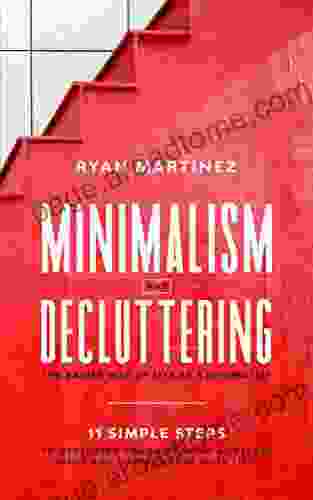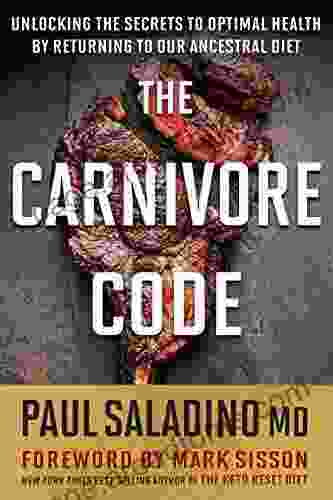What Every Job Candidate Should Know: A Comprehensive Guide to Landing Your Dream Job

The job search process can be a daunting one, but it doesn't have to be. By following these steps, you can increase your chances of finding your dream job:
- Identify your goals. What kind of job do you want? What are your salary expectations? What are your career goals? Once you know what you're looking for, you can start to narrow your search.
- Research companies and industries. Which companies are hiring in your field? What are the industry trends? The more you know about the job market, the better prepared you'll be to find the right job.
- Network. Attend industry events, join professional organizations, and reach out to your friends and family. Networking is a great way to learn about job openings and get your foot in the door.
- Apply for jobs. Once you've found some jobs that you're interested in, it's time to apply. Make sure to tailor your resume and cover letter to each job you apply for.
- Prepare for interviews. If you're called for an interview, be prepared to answer questions about your experience, skills, and qualifications. You should also practice your interviewing skills so that you can make a good impression.
- Negotiate your salary. Once you've been offered a job, it's time to negotiate your salary. Be prepared to discuss your salary expectations and be willing to compromise.
Your resume is one of the most important tools you have in your job search. It's your chance to showcase your skills and experience to potential employers.
Here are some tips for writing a strong resume:
4.5 out of 5
| Language | : | English |
| File size | : | 4772 KB |
| Text-to-Speech | : | Enabled |
| Enhanced typesetting | : | Enabled |
| X-Ray | : | Enabled |
| Word Wise | : | Enabled |
| Print length | : | 49 pages |
| Lending | : | Enabled |
| Screen Reader | : | Supported |
- Keep it concise. Your resume should be no more than one page long. Use bullet points to list your skills and experience, and avoid using jargon or technical terms that potential employers may not understand.
- Highlight your accomplishments. Don't just list your job duties; instead, focus on your accomplishments and the results you achieved. Use specific numbers and metrics to quantify your successes.
- Tailor your resume to each job you apply for. Take the time to tailor your resume to each job you apply for. This means highlighting the skills and experience that are most relevant to the job you're applying for.
- Get feedback. Once you've written your resume, ask a friend, family member, or career counselor to review it and give you feedback. This will help you identify any areas that need improvement.
The interview is your chance to make a good impression on potential employers and show them why you're the right person for the job.
Here are some tips for acing your job interviews:
- Be prepared. Do your research on the company and the job you're applying for. This will help you answer questions intelligently and show that you're interested in the position.
- Dress professionally. First impressions matter, so make sure you dress professionally for your interview. This means wearing a suit or business casual attire.
- Be on time. Punctuality is important, so make sure you arrive for your interview on time. If you're running late, call or email the interviewer to let them know.
- Be yourself. Be yourself and don't try to be someone you're not. Employers can tell when you're being fake, so just be yourself and let your personality shine through.
- Ask questions. Asking questions at the end of an interview shows that you're interested in the job and that you're engaged in the conversation. It also gives you a chance to learn more about the company and the position.
Negotiating your salary is an important part of the job search process. By following these tips, you can increase your chances of getting the salary you want:
- Do your research. Before you start negotiating, do your research and find out what the average salary is for the position you're applying for. This will give you a good starting point for negotiations.
- Be prepared to walk away. If the employer is unwilling to meet your salary expectations, be prepared to walk away from the negotiation. There are other jobs out there, and you shouldn't settle for less than you're worth.
- Be willing to compromise. In most cases, you won't get exactly what you want in a salary negotiation. Be willing to compromise and meet the employer halfway.
- Get everything in writing. Once you've reached an agreement, get everything in writing. This will help protect you in the event of any misunderstandings.
In addition to the information provided in this guide, there are a number of other resources available to help you with your job search.
- Career counselors. Career counselors can provide you with personalized advice and support on all aspects of your job search.
- Job boards. Job boards are a great way to find job openings in your field.
- Social media. Social media can be a great way to network with potential employers and learn about job openings.
- Books and articles. There are a number of books and articles available on the topic of job searching.
By following the advice in this guide and using the resources available to you, you can increase your chances of finding your dream job.
4.5 out of 5
| Language | : | English |
| File size | : | 4772 KB |
| Text-to-Speech | : | Enabled |
| Enhanced typesetting | : | Enabled |
| X-Ray | : | Enabled |
| Word Wise | : | Enabled |
| Print length | : | 49 pages |
| Lending | : | Enabled |
| Screen Reader | : | Supported |
Do you want to contribute by writing guest posts on this blog?
Please contact us and send us a resume of previous articles that you have written.
 Book
Book Novel
Novel Page
Page Chapter
Chapter Text
Text Story
Story Genre
Genre Reader
Reader Library
Library Paperback
Paperback E-book
E-book Magazine
Magazine Newspaper
Newspaper Paragraph
Paragraph Sentence
Sentence Bookmark
Bookmark Shelf
Shelf Glossary
Glossary Bibliography
Bibliography Foreword
Foreword Preface
Preface Synopsis
Synopsis Annotation
Annotation Footnote
Footnote Manuscript
Manuscript Scroll
Scroll Codex
Codex Tome
Tome Bestseller
Bestseller Classics
Classics Library card
Library card Narrative
Narrative Biography
Biography Autobiography
Autobiography Memoir
Memoir Reference
Reference Encyclopedia
Encyclopedia Paul Gow
Paul Gow Walter Borchardt Ott
Walter Borchardt Ott Russell Tuckerton
Russell Tuckerton Paul Jensen
Paul Jensen Peter G Tsouras
Peter G Tsouras Stefan Pugh
Stefan Pugh Louis Sell
Louis Sell Teri Van Horn
Teri Van Horn Phillip Khan Panni
Phillip Khan Panni Olympia Dukakis
Olympia Dukakis Patrick Oswald
Patrick Oswald Lawrence E Shapiro
Lawrence E Shapiro Scott Faragher
Scott Faragher Patrick Jasper Lee
Patrick Jasper Lee R Keith Mobley
R Keith Mobley Toby Woodman
Toby Woodman Ron Ziel
Ron Ziel Philippa Stanton
Philippa Stanton Olivia Wylie
Olivia Wylie Richard Power
Richard Power
Light bulbAdvertise smarter! Our strategic ad space ensures maximum exposure. Reserve your spot today!
 Marc FosterFollow ·2.3k
Marc FosterFollow ·2.3k Natsume SōsekiFollow ·11.4k
Natsume SōsekiFollow ·11.4k Clarence MitchellFollow ·14.8k
Clarence MitchellFollow ·14.8k Stephen KingFollow ·9.7k
Stephen KingFollow ·9.7k Hayden MitchellFollow ·8.9k
Hayden MitchellFollow ·8.9k Michael ChabonFollow ·18.8k
Michael ChabonFollow ·18.8k Ricky BellFollow ·12.9k
Ricky BellFollow ·12.9k Rob FosterFollow ·3.6k
Rob FosterFollow ·3.6k

 W. Somerset Maugham
W. Somerset MaughamNourishing Delights: Easy Recipes Without Salt, Oil, or...
Are you looking for...

 Zachary Cox
Zachary CoxThe Art of Kitchen Fitting: A Masterful Guide to Culinary...
The kitchen, the heart of...

 Elliott Carter
Elliott CarterArticulating the Spirit of Black Women Teacher Leaders:...
In the tapestry of education,...

 James Gray
James GrayThe Complete Guide to Arduino: Your Journey to...
: Unveiling the...
4.5 out of 5
| Language | : | English |
| File size | : | 4772 KB |
| Text-to-Speech | : | Enabled |
| Enhanced typesetting | : | Enabled |
| X-Ray | : | Enabled |
| Word Wise | : | Enabled |
| Print length | : | 49 pages |
| Lending | : | Enabled |
| Screen Reader | : | Supported |















